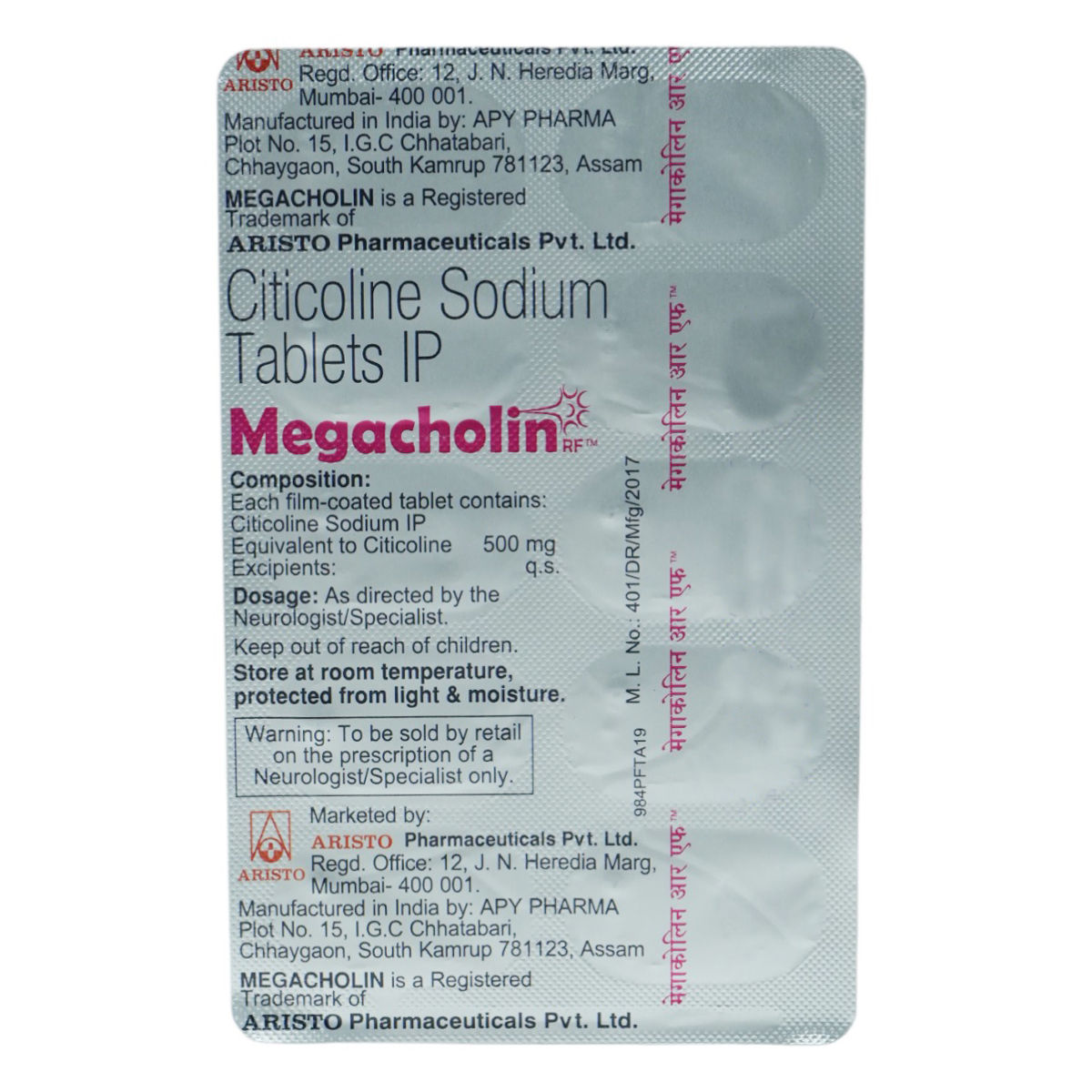Sulin-500 Tablet 6's
₹243*
MRP ₹270
10% off
₹229.5*
MRP ₹270
15% CB
₹40.5 cashback(15%)
Free Delivery
With Circle membership
(Inclusive of all Taxes)
This offer price is valid on orders above ₹800. Apply coupon PHARMA10/PHARMA18 (excluding restricted items)
Know Your Delivery Time
Provide Delivery Location

Whats That

Secure Payment

India's Most Trusted Pharmacy

Genuine Products
Composition :
Manufacturer/Marketer :
Consume Type :
Return Policy :
Expires on or after :
About Sulin-500 Tablet
Sulin-500 Tablet is used to treat stroke, head trauma or injury, Alzheimer’s disease, Parkinson’s disease, and glaucoma. A stroke occurs due to insufficient blood supply to the brain. Alzheimer’s disease is a progressive age-related memory loss. Parkinson’s disease is a progressive brain disorder that affects movement. Glaucoma is an eye problem that occurs due to damage to the optic nerve, responsible for vision.
Sulin-500 Tablet contains 'Citicoline’, a psychostimulant or nootropic used to nourish and minimize damage to the nerve cells in various conditions associated with the brain. It increases the activity of the central nervous system (brain and spinal cord). It regenerates nerve cells by promoting the synthesis of phospholipids (forms neuronal membrane) in the brain. It improves learning, memory, judging, and thinking processes. It can improve recovery in patients with disturbance in consciousness in patients with head injury or any other problems associated with the brain and who underwent surgery.
You may experience some side effects, such as gastrointestinal disturbances, including nausea, constipation or diarrhoea, abdominal pain, headache, blurred vision, insomnia (trouble sleeping), hypotension (decrease in blood pressure), increased or decreased heart rate, and restlessness. Most of these side effects do not require medical attention. However, if the symptoms persist or get worsen, consult a doctor immediately.
Before taking the Sulin-500 Tablet, let your doctor know about all your allergic or hypersensitivity reactions to medicines or food. Inform your doctor if you are suffering from kidney, liver, or heart disease. If you are pregnant or breastfeeding, please tell your doctor so that your doctor will weigh the benefits and any potential risks before prescribing it to you. Keep your doctor informed about your health condition and all the medicines you are taking before taking Sulin-500 Tablet to rule out any side effects.
Uses of Sulin-500 Tablet
Medicinal Benefits
Sulin-500 Tablet contains 'Citicoline,' which belongs to the class of ‘psychostimulants.’ It is used to promote brain health. It is used to treat stroke, head injury, Alzheimer’s disease, Parkinson’s disease, and glaucoma. It protects the brain from neurotoxicity (damage to the brain). It acts as a precursor for phospholipids (present in the outer membrane of the nerve cell) and also stimulates phospholipid synthesis in the brain. It also stimulates blood flow and oxygen consumption in the brain. This promotes brain activity and improves cognition, memory, and thinking capabilities in patients with progressive brain disorders. It accelerates the recovery rate in patients with neurological diseases (diseases affecting the brain).
Side Effects of Sulin-500 Tablet
- Nausea
- Constipation
- Diarrhea
- Headache
- Insomnia (trouble sleeping)
- Hypotension (decrease in blood pressure)
- Blurred vision
- Increase or decrease in heart rate
- Restlessness
Directions for Use
Storage
Drug Warnings
Before taking the Sulin-500 Tablet, let your doctor know about all your allergic or hypersensitivity reactions to medicines or food. Inform your doctor if you are suffering from kidney, liver, or heart disease. If you are pregnant or breastfeeding, please tell your doctor so that your doctor will weigh the benefits and any potential risks before prescribing it to you. Keep your doctor informed about your health condition and all the medicines you are taking before taking Sulin-500 Tablet to rule out any side effects.
Therapeutic Class
Drug-Drug Interactions
Drug-Food Interactions
Diet & Lifestyle Advise
Include more green, leafy vegetables and other non-starchy vegetables (tomatoes, broccoli, cauliflower, etc.) in your diet.
Eat strawberries, blueberries, blackberries, and nuts as they reduce inflammation in the brain.
Use olive oil for cooking purposes. It contains healthy fats that promote brain health.
Eat whole grains such as oats, quinoa, and brown rice that are rich in nutrients.
Opt for fish oil or eat fish (preferably fatty fish like salmon, sardines, trout, and tuna) at least once a week. They are rich in omega-3 fatty acids essential for the brain's normal functioning.
Avoid fried, processed, and packed foods.
Quit alcohol intake and smoking.
Exercise regularly.
Habit Forming
How Sulin-500 Tablet Works
What if I have taken an overdose of Sulin-500 Tablet
Alcohol
Caution
Sulin-500 Tablet may or may not interact with alcohol. However, alcohol worsens neurological conditions. So, it is better to avoid consuming alcohol.
Pregnancy
Caution
You should not take Sulin-500 Tablet during pregnancy unless prescribed by a doctor. The safety of this medicine for use during pregnancy has not been established.
Breast Feeding
Caution
A breastfeeding mother should not take Sulin-500 Tablet unless prescribed by a doctor.
Driving
Caution
Sulin-500 Tablet may cause blurred vision and a decrease in blood pressure. So, it is recommended to be cautious to drive or operate heavy machinery after taking Sulin-500 Tablet.
Liver
Caution
Limited information was available for the use of Sulin-500 Tablet in patients suffering from liver impairment. Please consult your doctor if you have any concerns regarding using Sulin-500 Tablet in patients with liver impairment. Your doctor will prescribe only if the benefits outweigh the risks.
Kidney
Caution
Limited information was available for the use of Sulin-500 Tablet in patients suffering from kidney impairment. Please consult your doctor if you have any concerns regarding using Sulin-500 Tablet in patients with kidney impairment. Your doctor will prescribe only if the benefits outweigh the risks.
Children
Caution
Sulin-500 Tablet is not used in children below 12 years of age unless prescribed by a doctor.
Country of origin
Manufacturer/Marketer address
Author Details
We provide you with authentic, trustworthy and relevant information
FAQs
Disclaimer
Product Substitutes




















